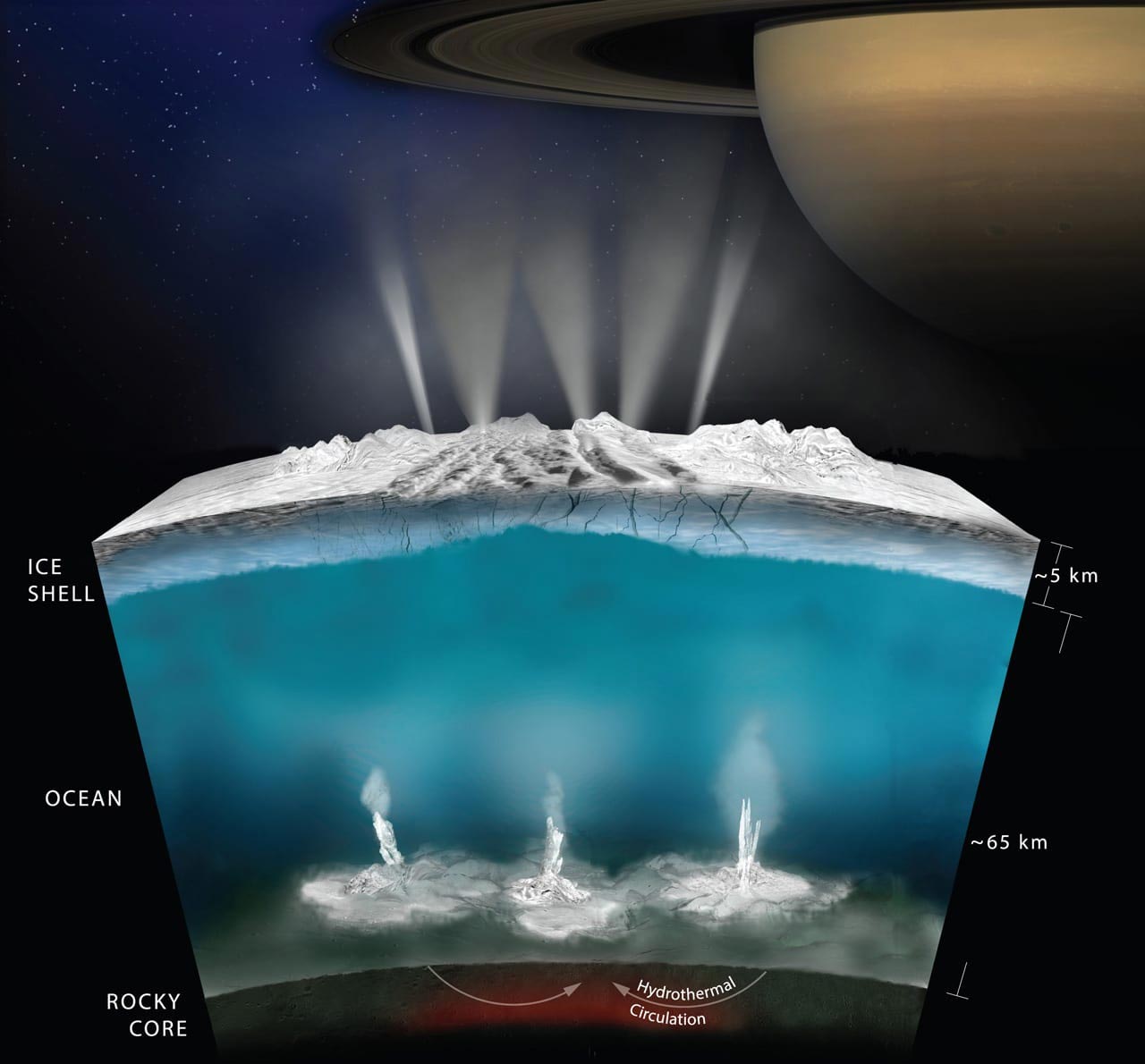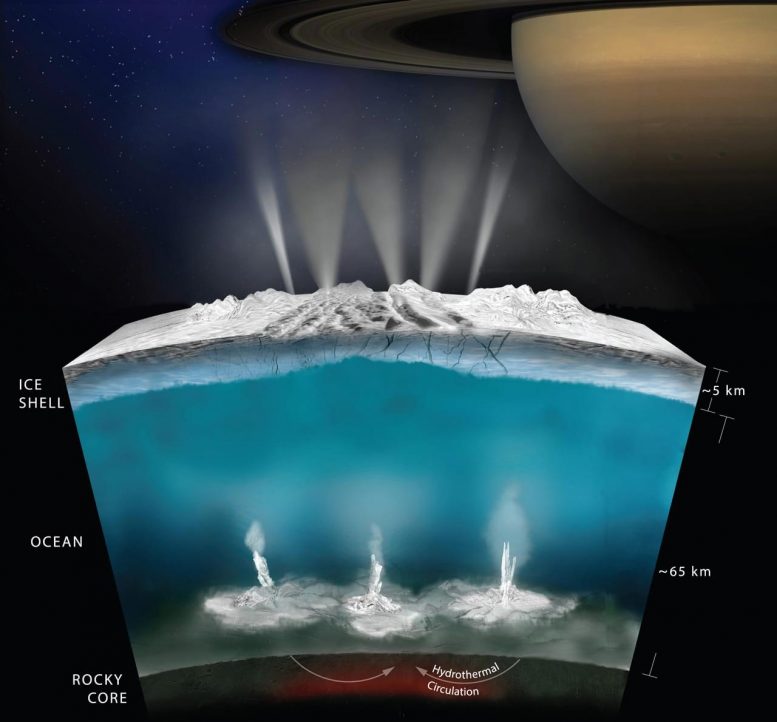
Worlds With Underground Oceans – Like Europa, Titan, and Enceladus – May Be More Conducive to Supporting Life Than Earth
Layers of ice and rock obviate the need for "habitable zone" and shield life against threats. SwRI researcher theorizes worlds with underground oceans may be more conducive to life than worlds with surface oceans like Earth. One of the most profound discoveries in planetary science over the pa
scitechdaily.com

One of the most profound discoveries in planetary science over the past 25 years is that worlds with oceans beneath layers of rock and ice are common in our solar system. Such worlds include the icy satellites of the giant planets, like Europa, Titan, and Enceladus, and distant planets like Pluto.
In a report presented at the 52nd annual Lunar and Planetary Science Conference (LPSC 52) this week, Southwest Research Institute planetary scientist S. Alan Stern writes that the prevalence of interior water ocean worlds (IWOWs) in our solar system suggests they may be prevalent in other star systems as well, vastly expanding the conditions for planetary habitability and biological survival over time.
Worlds like Earth, with oceans on their exterior, are also subject to many kinds of threats to life, ranging from asteroid and comet impacts, to stellar flares with dangerous radiation, to nearby supernova explosions and more. Stern's paper points out that IWOWs are impervious to such threats because their oceans are protected by a roof of ice and rock, typically several to many tens of kilometers thick, that overlie their oceans.
"Interior water ocean worlds are better suited to provide many kinds of environmental stability, and are less likely to suffer threats to life from their own atmosphere, their star, their solar system, and the galaxy, than are worlds like Earth, which have their oceans on the outside," said Stern.
"The same protective layer of ice and rock that creates stable environments for life also sequesters that life from easy detection," said Stern.
In 2015, NASA created the Ocean Worlds Exploration Program, which seeks to explore an ocean world to determine habitability and seek life. Moons that harbor oceans under a shell of ice, such as Europa and Titan, are already the targets of NASA missions to study the habitability of these worlds.
The paper, "Some Implications for Both Life and Civilizations Regarding Interior Water Ocean Worlds" at LPSC 52 is available here (PDF).

